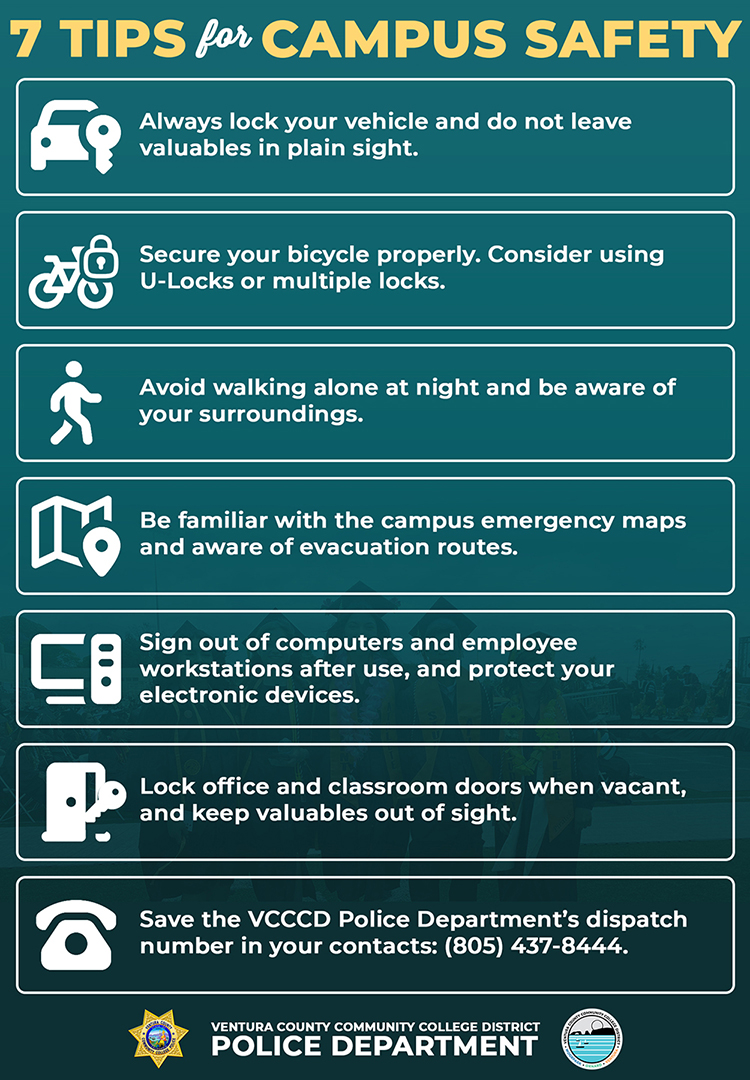Oxnard College considers the health and safety of its students, faculty, staff and the community a top priority. It is our goal to keep everyone informed of events and activities that affect our campuses and county.
On this Alerts page, you’ll find the latest, comprehensive information about emergencies, closures and other events impacting our colleges and community.
_____________________________________________________________________________________________________________________
Wi-Fi Connectivity Issues
Posted: January 28, 2026 at 8:54am
Electric power was restored to Oxnard College’s main campus overnight; however, Wi-Fi connectivity may be limited until approximately noon today. Meanwhile, computers are available for student use in the Library and Learning Resource Center.
___________________________________________________________________________________________
Power Outage — Update
Posted: January 27, 2026 at 10:15pm
Classes and operations will resume on Wednesday, Jan. 28th. Employees should check their email for additional guidance.


